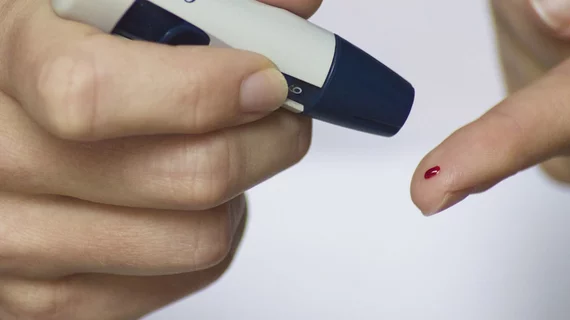Verapamil shows potential as a long-term oral treatment for type 1 diabetes
Verapamil, a common blood pressure medication, may be an effective long-term treatment for patients with type 1 diabetes, according to new research published in Nature Communications.[1]
The study’s authors have been examining the impact of the calcium channel blocker on type 1 diabetes patients for many years, first noticing the medication’s potential during research on animal models in 2014. This latest two-year analysis represents an update on one-year findings published in Nature Medicine in 2018.
The group’s research focused on assessing blood serum samples from a small group of patients with type 1 diabetes. Patients did not take any diabetes medications other than their standard insulin regimen over the course of the study.
Overall, the use of verapamil helped delay disease progression, improved endogenous beta-cell function and lowered insulin requirements. When patients stopped taking the medication, however, its impact seemed to fade, suggesting that a patient must continuously take verapamil to see consistent benefits.
Taking verapamil was also associated with normalizing levels of a serum protein called chromogranin A (CHGA). In fact, after one year, CHGA levels among patients on verapamil were comparable to healthy control patients. Patients taking a placebo did not see changes in chromogranin A levels, suggesting that it may offer potential as a “therapeutic marker.”
“In humans with Type 1 diabetes, even a small amount of preserved endogenous insulin production — as opposed to higher exogenous insulin requirements — has been shown to be associated with improved outcomes and could help improve quality of life and lower the high costs associated with insulin use,” lead author Anath Shalev, MD, director of the University of Alabama at Birmingham’s Comprehensive Diabetes Center, said in a prepared statement. “The fact that these beneficial verapamil effects seemed to persist for two years, whereas discontinuation of verapamil led to disease progression, provides some additional support for its potential usefulness for long-term treatment.”
No oral treatment is currently approved for type 1 diabetes. Could verapamil provide relief for patients in the near future? Shalev and colleagues know that additional research, including much larger trials, is still needed — but their findings do suggest that there is considerable potential for a breakthrough.
Related Diabetes Pharmaceutical Content:
4 new medications and technologies that could transform cardiology in 2022
Adults with type 2 diabetes are not taking care of their hearts
Obesity more common among patients with type 1 diabetes than ever
Adults with COVID-19 and type 1 diabetes face a heightened risk of hospitalization
Reference:

